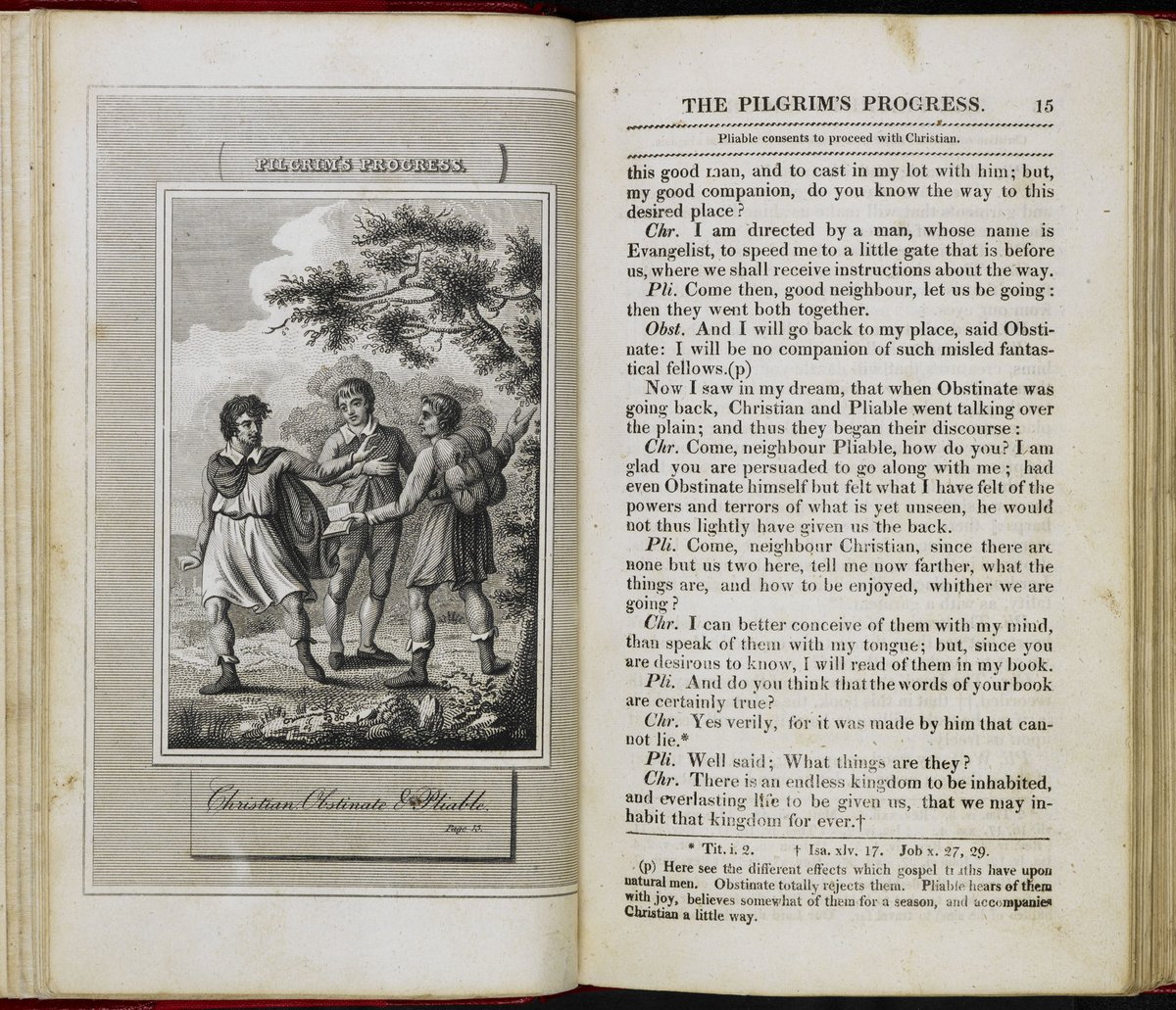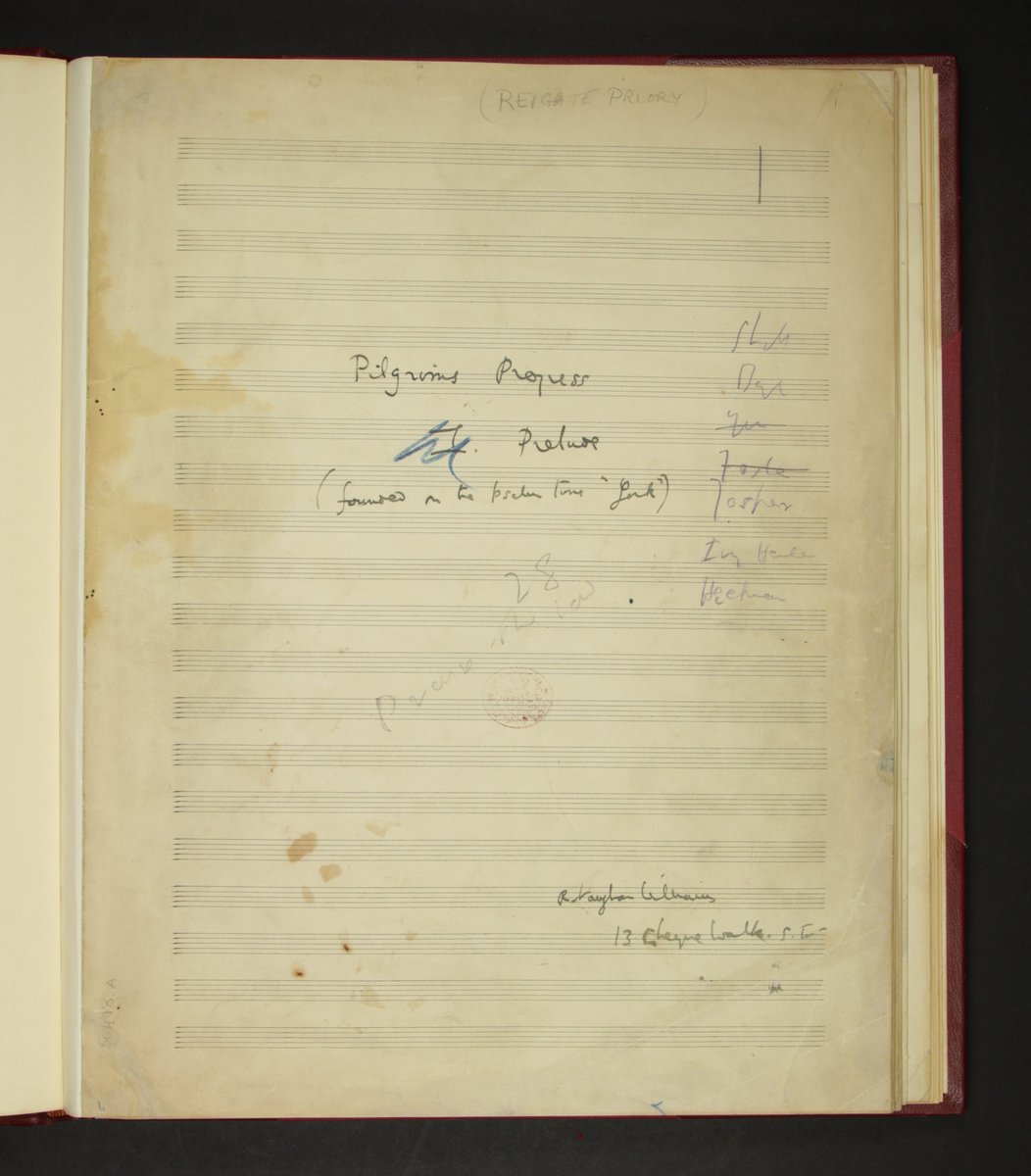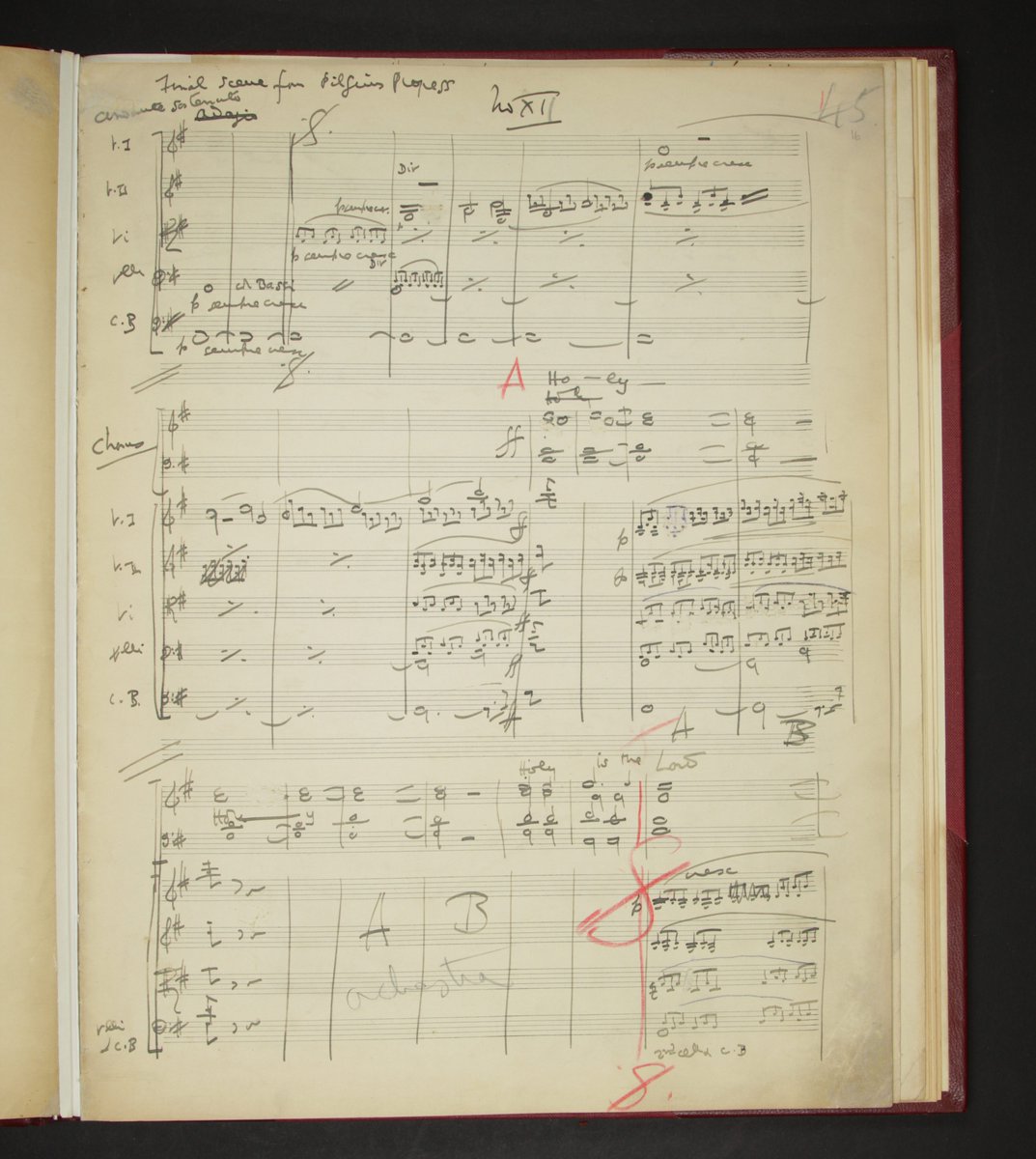Today& #39;s virtual exhibition is called Pilgrim& #39;s Progress.
I& #39;ve chosen it from collection items @britishlibrary
First up is Matthew Paris& #39;s itinerary from London to Palestine (c. 1250). Paris was a monk of St Albans, who barely left his monastery.
https://www.bl.uk/collection-items/matthew-paris-itinerary-map">https://www.bl.uk/collectio...
I& #39;ve chosen it from collection items @britishlibrary
First up is Matthew Paris& #39;s itinerary from London to Palestine (c. 1250). Paris was a monk of St Albans, who barely left his monastery.
https://www.bl.uk/collection-items/matthew-paris-itinerary-map">https://www.bl.uk/collectio...
Pilgrimage by proxy is the theme of this 15th-century guidebook. It describes a pilgrimage to Jerusalem and Mount Sinai (look out for the pyramids). Originally written in Italian, here is a translation into German.
https://blogs.bl.uk/digitisedmanuscripts/2020/03/pilgrimage-by-proxy.html">https://blogs.bl.uk/digitised...
https://blogs.bl.uk/digitisedmanuscripts/2020/03/pilgrimage-by-proxy.html">https://blogs.bl.uk/digitised...
Here, in contrast, is a 14th-century manual for pilgrims walking St James’s Way to Santiago de Compostela.
It provides practical advice, such as which water is safe to drink and how to board ferries.
https://www.bl.uk/collection-items/santiago-14th-century-pilgrim-travel-guide">https://www.bl.uk/collectio...
It provides practical advice, such as which water is safe to drink and how to board ferries.
https://www.bl.uk/collection-items/santiago-14th-century-pilgrim-travel-guide">https://www.bl.uk/collectio...
The archetypal medieval English pilgrimage was to Canterbury rather than the Holy Land or Spain.
It& #39;s most familiar from the Canterbury Tales, although none of the surviving 90 manuscripts dates from Chaucer& #39;s own lifetime.
https://www.bl.uk/collection-items/the-canterbury-tales-by-geoffrey-chaucer
https://www.bl.uk/collectio... href=" https://www.bl.uk/collection-items/ellesmere-manuscript">https://www.bl.uk/collectio...
It& #39;s most familiar from the Canterbury Tales, although none of the surviving 90 manuscripts dates from Chaucer& #39;s own lifetime.
https://www.bl.uk/collection-items/the-canterbury-tales-by-geoffrey-chaucer
Here is The Pilgrim& #39;s Progress itself. Written mostly by John Bunyan while in Bedford Gaol, it tells the story of Christian and his journey from The City of Destruction (representing Earth) to the Celestial City (representing Heaven).
https://www.bl.uk/collection-items/the-pilgrims-progress-by-john-bunyan">https://www.bl.uk/collectio...
https://www.bl.uk/collection-items/the-pilgrims-progress-by-john-bunyan">https://www.bl.uk/collectio...
Finally, here is Ralph Vaughan Williams& #39; music for a production of the Pilgrim& #39;s Progress. The dramatisation was written by Mrs Hadley and Miss Ouless, and it was first performed in 1906.
This manuscript is in the composer& #39;s own hand.
https://www.bl.uk/collection-items/vaughan-williams-music-for-the-pilgrims-progress">https://www.bl.uk/collectio...
This manuscript is in the composer& #39;s own hand.
https://www.bl.uk/collection-items/vaughan-williams-music-for-the-pilgrims-progress">https://www.bl.uk/collectio...

 Read on Twitter
Read on Twitter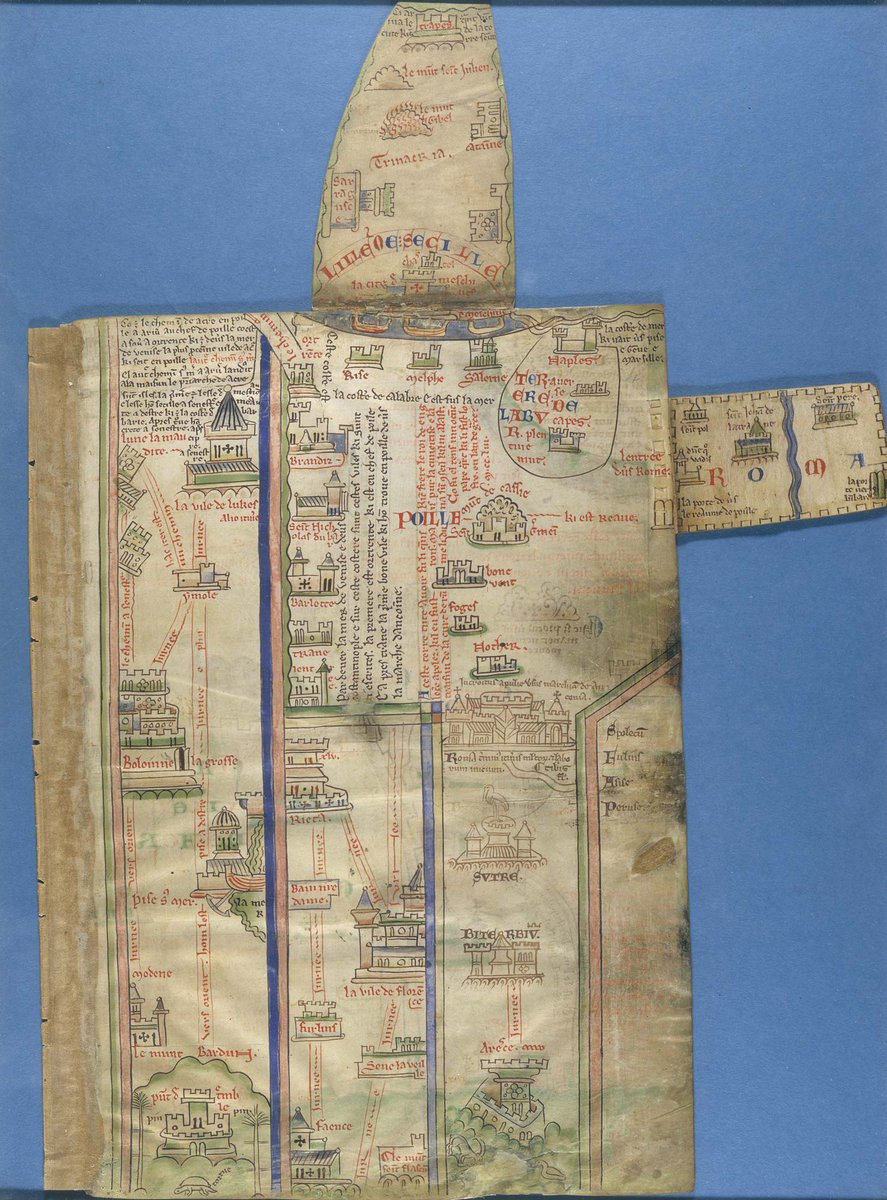


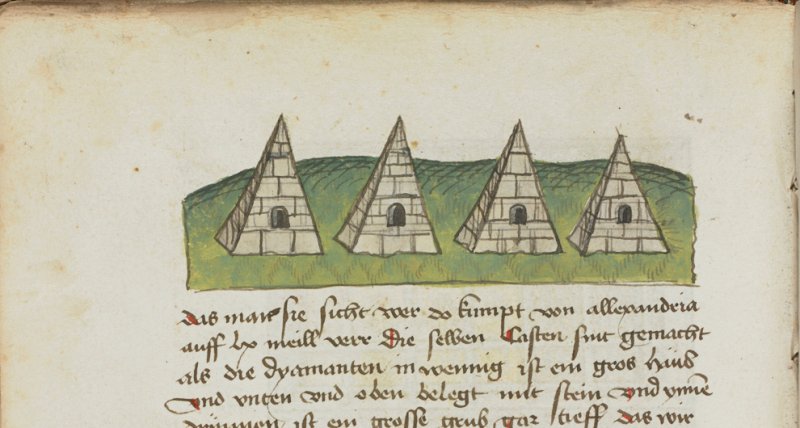

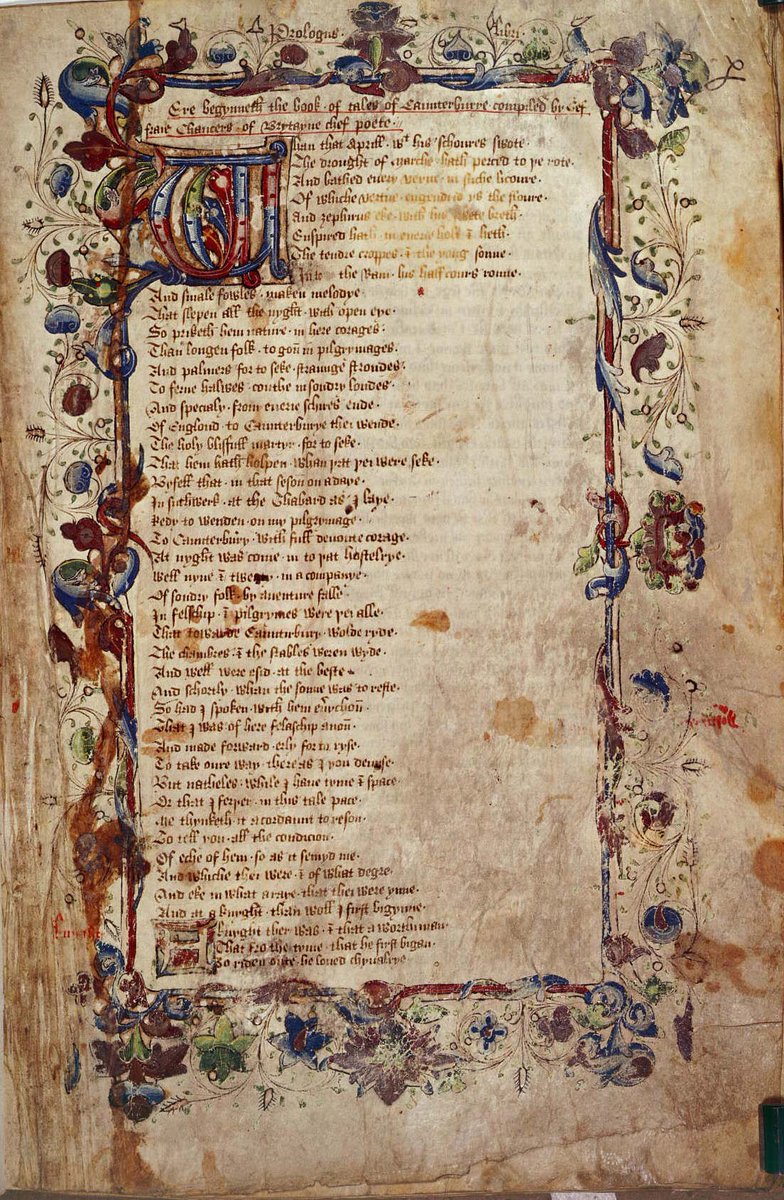 https://www.bl.uk/collectio..." title="The archetypal medieval English pilgrimage was to Canterbury rather than the Holy Land or Spain.It& #39;s most familiar from the Canterbury Tales, although none of the surviving 90 manuscripts dates from Chaucer& #39;s own lifetime. https://www.bl.uk/collectio... href=" https://www.bl.uk/collection-items/ellesmere-manuscript">https://www.bl.uk/collectio...">
https://www.bl.uk/collectio..." title="The archetypal medieval English pilgrimage was to Canterbury rather than the Holy Land or Spain.It& #39;s most familiar from the Canterbury Tales, although none of the surviving 90 manuscripts dates from Chaucer& #39;s own lifetime. https://www.bl.uk/collectio... href=" https://www.bl.uk/collection-items/ellesmere-manuscript">https://www.bl.uk/collectio...">
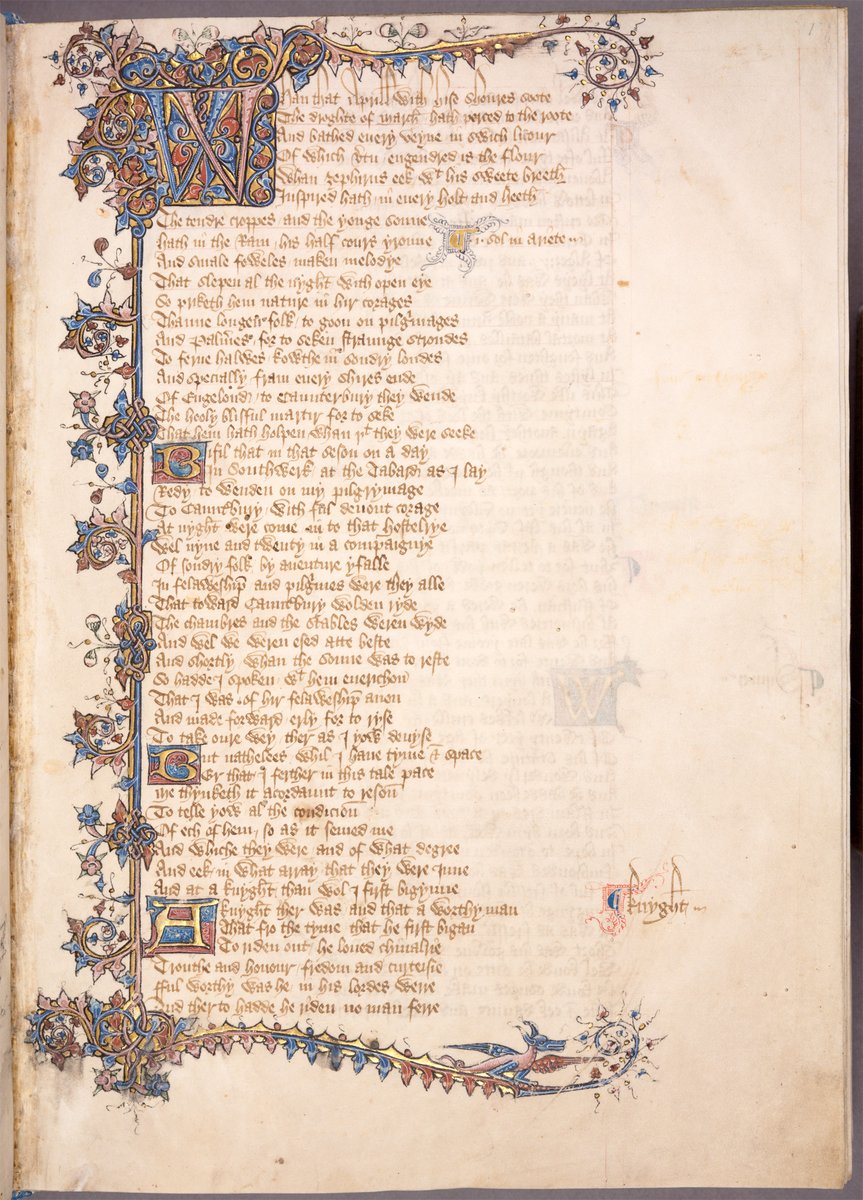 https://www.bl.uk/collectio..." title="The archetypal medieval English pilgrimage was to Canterbury rather than the Holy Land or Spain.It& #39;s most familiar from the Canterbury Tales, although none of the surviving 90 manuscripts dates from Chaucer& #39;s own lifetime. https://www.bl.uk/collectio... href=" https://www.bl.uk/collection-items/ellesmere-manuscript">https://www.bl.uk/collectio...">
https://www.bl.uk/collectio..." title="The archetypal medieval English pilgrimage was to Canterbury rather than the Holy Land or Spain.It& #39;s most familiar from the Canterbury Tales, although none of the surviving 90 manuscripts dates from Chaucer& #39;s own lifetime. https://www.bl.uk/collectio... href=" https://www.bl.uk/collection-items/ellesmere-manuscript">https://www.bl.uk/collectio...">
